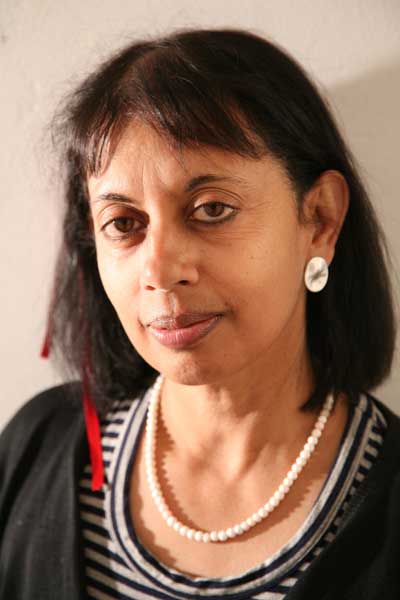Ariadne’s Thread: In memory of W.G. Sebald by Philippa Comber, book review: How Sebald remains a great inspiration for writer, Roma Tearne

Your support helps us to tell the story
From reproductive rights to climate change to Big Tech, The Independent is on the ground when the story is developing. Whether it's investigating the financials of Elon Musk's pro-Trump PAC or producing our latest documentary, 'The A Word', which shines a light on the American women fighting for reproductive rights, we know how important it is to parse out the facts from the messaging.
At such a critical moment in US history, we need reporters on the ground. Your donation allows us to keep sending journalists to speak to both sides of the story.
The Independent is trusted by Americans across the entire political spectrum. And unlike many other quality news outlets, we choose not to lock Americans out of our reporting and analysis with paywalls. We believe quality journalism should be available to everyone, paid for by those who can afford it.
Your support makes all the difference.The Saint Malo literary festival provides a special book train for the participants coming to it from Paris. A few years ago after the festival had finished, as I was boarding this train, another writer rushed along the platform calling my name. He knew me simply from an article I once wrote mentioning W. G. Sebald.
He was, he assured me eagerly, a fan of Sebald like myself. There followed a hilarious journey back to Paris during which we discovered how once, long ago, when desperately poor, we had both stolen a copy of the same book written by the great man. Others in the carriage, including my French editor were aghast. But such is the passion Sebald inspires in his followers we argued, that anything was allowed.
‘Oh Max would have approved,’ my new friend cried and I agreed. Sebald had loved coincidences.
As a result of his untimely death in 2001 and the relatively few books he left behind, those of us who love the work of Sebald, remain greedy for any newly discovered fragment of information about him. So, imagine my delight when I discovered Ariadne’s Thread: In memory of W.G. Sebald by the psychotherapist, Philippa Comber. I ordered it and waited impatiently for its arrival.
Being an artist and a writer who uses found photographs in my work, and as an immigrant who remains preoccupied with the notion of memory and remembrances I have always felt Sebald’s books spoke directly to me. Was this perhaps, because, as Iain Sinclair says in his forward to Ariadne’s Thread, Sebald ‘…haunts corridors of elective darkness, arguing with pain and memory…’? Whatever the reason he has remained a huge inspiration. Some months before his death I wrote asking if I might meet him. Reluctantly he agreed but then soon after, died. Philippa Comber was in the envious position of knowing Max (as his friends called him) personally. I never would.
Reading Ariadne’s Thread I found it enchanting in many ways. Not only is the delicately restrained love story that criss-crosses the text reminiscent of something Penelope Fitzgerald, another favourite author, might have written, but the conversations between Comber and Max and their excavation of memory are equally fascinating.
It is wonderful that Max, custodian of Germany’s painful past, the Primo Levi of German consciousness, continues to speaks out from the pages of Ariadne’s Thread on the sacred differences between memory and remembrance.
For me one of the most illuminating incidents in the book is an exchange between the two of them about Comber’s godmother Elisaveta. Elisaveta, it seemed, resolutely avoided talking about her own history, refusing to speak her native Russian.
‘Might this have been a variant,’ speculates Max,‘of internal migration? A state of mind that…could be a means of coping with the pain of homelessness…?’
Startled, for I had never heard of inner Emigration, I realised this was exactly what I too had done when, age ten, I arrived in Britain. Within a few weeks I told my mother I wanted to forget the ‘other’ languages I spoke and henceforth use only English. As an adult I have never been able to recover what I had given up in this way.
I am fascinated by the landscape, drawing it constantly in my sketch-books and Ariadne’s Thread continued to throw up personal associations for me. While reading I felt I was being taken through the brooding landscape of Southern Germany with its dark evergreen forests and its ‘Casper David Friedrich views’. References to the botanical gardens in Bamberg and the villages in the Bavarian Alps made me want to go on a walking trip there. The land was one of Max’s passions; he constantly walked it. It was Comber’s too. Exile, whether self-imposed or forced, creates an intense focus on the landscape of your birth.
Writing in her notebook soon after his death, Comber declares: ‘The common denominator was our sense of exile.’ Max had grappled with loss, his own and that of others and in a sudden flash we are afforded one last glimpse of the man. Ariadne’s Thread is a strangely appealing book and like all good books of its kind sends you back to re-reading Sebald’s texts. Because of this it seems appropriate to leave the last word to Sebald himself. Here it is, then, taken from the poem ‘Giulietta’s Birthday’ in Across the Land and the Water. As in all art,
One leaves behind one’s portrait
Without intent.
*Roma Tearne’s sixth novel The Last Pier will be published by Hesperus in April
Join our commenting forum
Join thought-provoking conversations, follow other Independent readers and see their replies
Comments